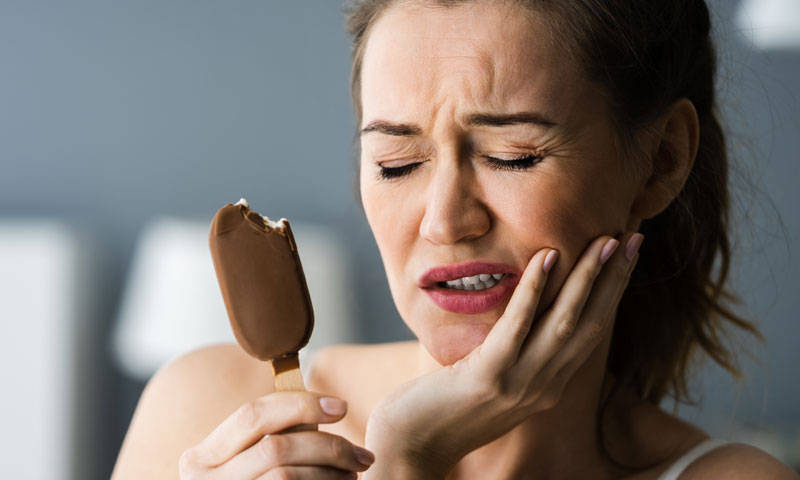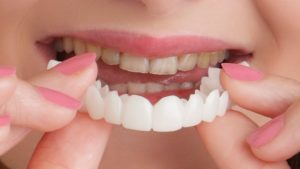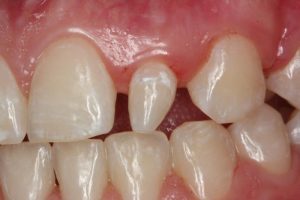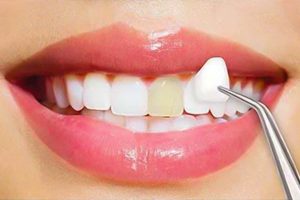We’ve finally gotten to the cold weather and my tooth hurts like crazy. I can’t even drink my coveted hot chocolate. Is there anything I can do to get rid of this pain?
Sara G. – Utah
Sara,
When your tooth is sensitive to heat, it means the pulp inside your tooth is so inflamed that it is about to die. This is something that needs treatment fairly quickly. You’ll need a root canal treatment and a dental crown.
You’ll want to get seen before any infection spreads elsewhere in your body. Explain to your dentist what is happening. If you’re still having trouble getting in quickly, there are dentists that will see you the same day in those situations. Just tell them what is going on and they will fit you in.
Don’t put this off. I want to reiterate that it is important to deal with this before things get worse.
Tooth sensitivity – Overview:
Tooth sensitivity to chocolate is a prevalent dental concern characterized by discomfort or pain when teeth are exposed to certain stimuli, such as hot or cold temperatures, sweet foods, or even air.
When it comes to enjoying a warm cup of hot chocolate, individuals experience tooth sensitivity and say that chocolate hurts teeth. They find it less pleasurable due to the immediate discomfort that ensues.
Common Causes of Tooth Sensitivity:
- Tooth Decay:
Cavities or tooth decay can expose the sensitive inner layers of the tooth, leading to increased sensitivity when consuming hot or cold substances.
- Gum Recession:
Receding gums can expose the tooth roots, which are more susceptible to temperature changes, resulting in heightened sensitivity.
- Enamel Erosion:
Weakened enamel, often caused by acidic foods or drinks, can leave the dentin layer of the tooth vulnerable, contributing to sensitivity.
- Cracked Teeth:
Cracks or fractures in the teeth can expose nerve endings, causing discomfort when exposed to temperature variations.
- Bruxism (Teeth Grinding):
Grinding or clenching the teeth, whether consciously or during sleep, can wear down enamel and contribute to tooth sensitivity.
Why Does Chocolate Hurt My Teeth?
Many people complain that “chocolate hurts my teeth”. Well, there could be a lot of reasons for that, such as:
1. Temperature Sensitivity:
One common reason why chocolate may cause tooth pain is temperature sensitivity. If you prefer your chocolate cold or frozen, the sudden temperature change can trigger discomfort, especially if you have sensitive teeth. The nerve endings in the teeth can react to extreme temperatures, leading to a sharp, fleeting pain.
2. Sugar Content:
Chocolate, especially in its sweeter forms, tends to have a significant sugar content. The presence of high sugar levels can contribute to tooth decay and cavities. When bacteria in the mouth break down sugars, they produce acid, which, over time, can erode tooth enamel and expose the sensitive inner layers of the tooth, leading to pain.
3. Acidic Ingredients:
Certain types of chocolate, particularly dark chocolate, may contain acidic ingredients. Acidic foods can contribute to enamel erosion, making the teeth more susceptible to sensitivity and discomfort. Pay attention to the overall acidity of the chocolate you consume, as it could be a factor in your tooth pain.
4. Underlying Dental Issues:
If chocolate consistently causes tooth pain, it might be an indicator of underlying dental issues such as cavities, cracked teeth, or gum problems. In such cases, the chocolate is not the cause of the pain but rather an exacerbating factor that highlights an existing problem.
Addressing Tooth Sensitivity: Tips for Hot Chocolate Lovers
Many people can’t take hot chocolate because they say “Chocolate makes my teeth hurt”. However, this is not a big deal. You can try these solutions:
- Use a Straw:
Sipping hot chocolate through a straw can help minimize direct contact with sensitive teeth, reducing the likelihood of pain.
- Choose a Sensitive Toothpaste:
Toothpaste formulated for sensitive teeth can provide relief by desensitizing the nerve endings and strengthening enamel over time.
- Avoid Extreme Temperatures:
Gradually acclimating hot chocolate to a slightly warmer but not scalding temperature may help minimize sensitivity.
- Regular Dental Check-ups:
Routine dental check-ups can identify and address underlying issues contributing to tooth sensitivity, allowing for targeted treatment.
- Limit Acidic Foods and Drinks:
Minimizing the consumption of acidic foods and beverages can help prevent further enamel erosion, reducing sensitivity.
When to Seek Professional Advice:
Persistent tooth sensitivity, especially when enjoying hot chocolate or other temperature-sensitive foods, should prompt a visit to the dentist. Dental professionals can conduct a thorough examination, identify the root cause of sensitivity, and recommend appropriate treatments or interventions.
Savoring Hot Chocolate Without Discomfort
For those who love indulging in a cup of hot chocolate but find themselves wincing at the thought of tooth pain, understanding and addressing tooth sensitivity is key.
By adopting practical tips and seeking professional guidance, individuals can look forward to savoring their favorite warm beverages without the discomfort that detracts from the joy of these simple pleasures.
Remember, a pain-free sip awaits with the right approach to dental care and sensitivity management.








